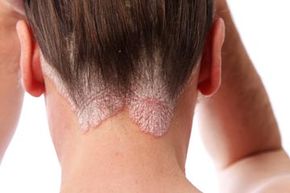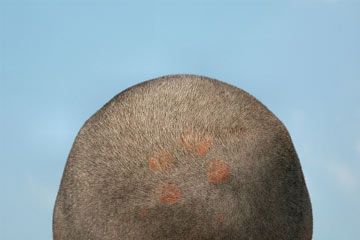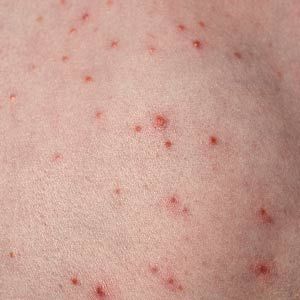They can be unsightly, uncomfortable and even painful. And, to add insult to injury, they have the potential to cause hair loss -- at least temporarily. Fortunately, scalp sores are typically treatable, although a doctor's expertise may be needed.
Generally speaking, the small wounds result from fungal, bacterial or viral infections. Blocked hair shafts can also cause the sores. Serious immune disorders, such as AIDS and HIV, are responsible in some instances.
Advertisement
Scalp sores may indicate one of the following skin conditions:
- Impetigo: This condition arises when bacteria enter a cut on the scalp. Antibacterial soap can keep the cut clean to prevent it.
- Pemphigus: An uncommon disease of the immune system, pemphigus occurs when the immune system turns on healthy cells. A dermatologist can diagnose the condition.
- Psoriasis: When new skin cells are produced before existing skin cells have matured, they create an overload that results in sores that have a tendency to itch. Psoriasis, like pemphigus, is an immune system disease.
- Ringworm: This fungal infection can lead not only to sores, but also black spots and loss of hair.
Treatments for scalp sores vary depending on the source of the problem. Antifungal medication taken in conjunction with the use of an antifungal shampoo is often prescribed by doctors for ringworm. Antibiotics are used for bacterial infections such as impetigo. Sores created by immune system diseases tend to be more stubborn, and require oral or injected medications and topical creams. Medication plus phototherapy, which limits cell turnover, may be called upon to treat psoriasis. In each of these instances, you'll want to consult a doctor, but there are home remedies that are helpful in preventing or minimizing the effect of scalp sores.
If you have reason to believe you've been exposed to ringworm, try an over-the-counter antifungal shampoo for two weeks. These shampoos won't eliminate the condition if it's already set in but can ward off the problem.
When it comes to viral, bacterial or fungal infections, cleanliness is the key. Shampoo after workouts to eliminate sweat, don't allow your scalp to stay moist for an extended period of time, and clean cuts with a sanitizing liquid. You can also guard against the spread of infections by not sharing hair accessories, hats or scarves. In addition, don't use someone else's comb or brush since some scalp conditions are easily passed from one person to another.
Advertisement


